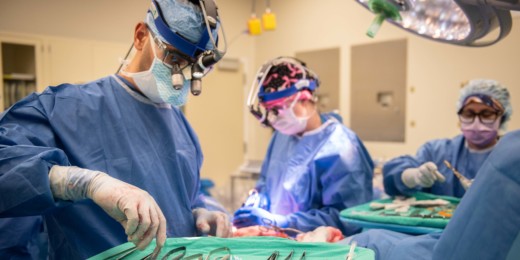People around the world were stunned when Black Panther actor Chadwick Boseman died of colon cancer earlier this year at age 43. How could his life be taken at a relatively young age by a disease typically associated with those who are older?
Unfortunately, colorectal cancer is now attacking younger people, particularly Black women and men. The American Cancer Society estimates that 12% of colorectal cancer cases this year will be diagnosed in people younger than 50 -- largely because precancerous growths weren't detected in early stages, before becoming malignant.
In response, the U.S. Preventive Services Task Force is now calling on clinicians to screen for colon cancer when patients turn 45, instead of 50 -- even patients who have no symptoms or personal or family history of the disease. The national panel of medical experts hopes that by closing that five-year gap, many lives will be saved.
Black adults disproportionately affected by colorectal cancer
Black adults are more likely to get colorectal cancer and are more likely to die from it, so screening is especially important, said Douglas Owens, MD, director of Stanford Health Policy and past chair of the task force. "Screening for colorectal cancer is one of the most important preventive services that clinicians can offer, and we know that not everyone who should be screened is, in fact, screened," he said.
Even though colorectal cancer is the third leading cause of cancer deaths in the United States, about a quarter of people ages 50 to 70 have never been screened. That is particularly worrisome for Black people, as a recent study found the incidence of colon cancer is 20% higher among them than among white people. Additionally, the mortality rate is 35% higher among Black people.
Increasing diagnosis rate in younger people
The American Cancer Society notes that the rate at which people are diagnosed with this form of cancer has been dropping among people 65 and older -- by 3% annually from 2011 to 2016. But for people 50 to 64, the trend has reversed, with rates rising at about 1% during that same time period.
"In our new draft guidelines, we recommend earlier screening because the epidemiology of colorectal cancer has changed, with increasing numbers of younger people getting cancer," Owens said, adding that there are many tests to effectively screen for the disease.
The task force is an independent, voluntary panel of experts in prevention and evidence-based medicine. Final recommendations are followed by most primary care physicians and clinicians nationwide.
Photo by Getty Images






